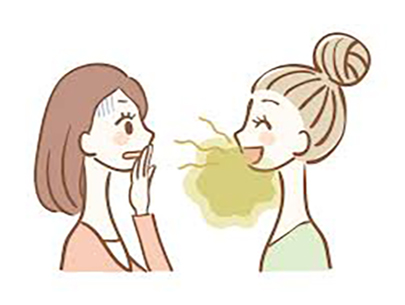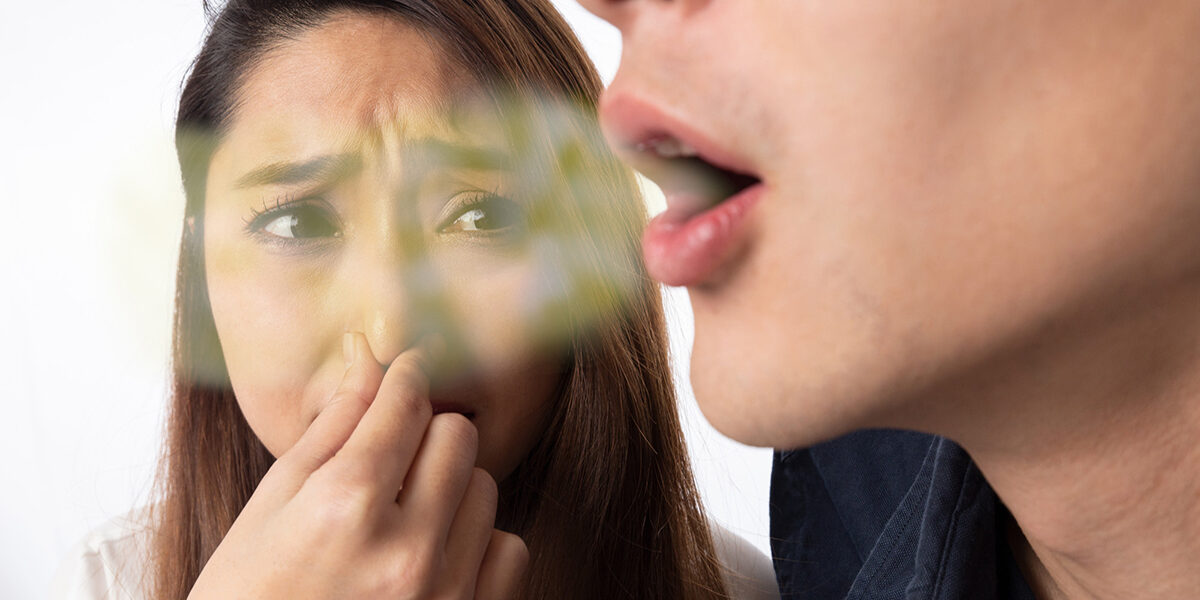The 7 most Common Causes of Bad Breath
Everyone experiences terrible breath at some point in their lives, but in Australia, 25% of people have halitosis, or bad breath. Most cases of bad breath start in the mouth and can be brought on by a number of factors, such as your diet, lifestyle choices, and underlying medical disorders. This blog examines a few possible oral reasons for foul breath.
1. Specific Foods and Drinks
Bad breath is caused by a few foods, including dairy, garlic, onions, and spices. Furthermore, beverages like coffee and alcohol can dry out your mouth, which encourages the growth of germs that causes bad breath.
2. Bad Dental Practices
Food particles stick to your teeth and cause bad breath if you don’t clean and floss your teeth every day. Furthermore, food particles can get stuck behind your dentures if you wear them, which will smell bad. Additionally, as part of their oral hygiene practice, many people neglect to wipe their tongues, which can harbor bacteria that cause odor.

3. Mouth Dryness
Bad odor-causing bacteria in the mouth are helped to be replaced by saliva. Bad breath is caused by odor-causing bacteria that are not removed by saliva when you have dry mouth. This explains why the majority of people experience “morning breath”: as you sleep, your salivary flow reduces, leading to dry mouth and foul breath.
4. Cigarette Use
Smoking can cause your mouth to become dry and smell like an ashtray, which can lead to foul breath. Moreover, gum disease, another cause of foul breath, is more common in smokers.
5. Pits
Bad breath is caused by plaque, which is a buildup of bacteria and food particles in cavities caused by tooth decay.
6. Gum Disease
Plaque accumulation on teeth is the cause of gum disease, also known as periodontital disease. Toxins are produced by the germs on your teeth when you don’t clean and floss correctly. This may lead to gum irritation, food-trapping pockets forming between your teeth and gums, and foul breath.
7. Dental Services
Bad breath may result from bleeding or dry sockets following extractions (such as the removal of wisdom teeth) until the wound heals. Bad breath can also result from an infection from a dental implant, therefore maintaining proper oral hygiene is essential to avoiding unpleasant side effects.
8. Alternative
Your foul breath could be coming from sources other than your mouth. Heartburn, gastrointestinal disorders, kidney disease, uncontrolled diabetes, asthma, cystic fibrosis, liver cirrhosis, tonsillitis, sinus infection, and other severe ailments may be among them. Furthermore, certain drugs emit substances that lead to poor breath or exacerbate dry mouth.
Gum, mints, and mouthwash will merely mask the issue. In most situations, foul breath can be improved by maintaining good dental hygiene. Make an appointment for a thorough examination with your dentist at Oakstone Dental.
It’s important to address the underlying cause of foul breath, which is why seeking professional advice is strongly advised.


